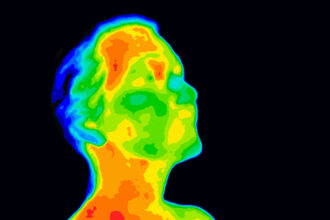Many people feel stressed and often turn to junk food for comfort. However, recent University of Colorado Boulder research indicates this habit might be counterproductive. The study reveals that high-fat diets in animals can disrupt gut microbiota and alter behaviours, influencing brain chemicals through a complex interaction between the gut and the brain, which may increase anxiety levels. Christopher Lowry, a professor of integrative physiology at CU Boulder and the study’s lead author, emphasized the broader implications, stating, “It’s common knowledge that these foods aren’t healthy, primarily due to their association with weight gain. However, understanding that they also influence your brain in a way that could increase anxiety heightens the stakes.”
Lowry’s team divided adolescent rats into two dietary groups over nine weeks: one received a standard diet with about 11% fat and a high-fat diet with 45% fat, mainly from animal-sourced saturated fats. This is in contrast to the typical American diet, which contains about 36% fat, according to the Centers for Disease Control and Prevention. The researchers collected faecal samples throughout the experiment to analyze changes in the animals’ microbiomes. After nine weeks, they conducted behavioural tests to assess the impacts of the diets. Not surprisingly, the rats on the high-fat diet not only gained more weight but also showed a significant decrease in gut bacterial diversity, typically associated with poorer health. This group also had a higher ratio of Firmicutes to Bacteroidetes, a bacterial balance often seen in obesity and typical industrialized diets.
The research further revealed that the high-fat diet group exhibited increased expression of three genes associated with serotonin production and signalling—particularly in the dorsal raphe nucleus of the brainstem, an area linked with stress and anxiety responses. Despite serotonin’s reputation as a “feel-good brain chemical,” Lowry noted that specific subsets of serotonin neurons could trigger anxiety-like responses when activated. “The fact that a high-fat diet could alter gene expression in the brain to this extent is remarkable,” he commented. “The molecular signature in the brains of the high-fat group reflected a high-anxiety state.”
Lowry suggested that an unhealthy microbiome might compromise the gut lining, allowing bacteria to enter the bloodstream and interact with the brain via the vagus nerve, which connects the gut to the brain. He explained, “This aligns with human evolutionary biology. We are biologically programmed to remember and avoid the sources of our illness.” This pathway highlights a significant, often overlooked impact of diet on mental health, suggesting that the gut-brain connection plays a crucial role in our overall well-being.
However, not all fats are harmful. Lowry stressed the importance of including healthy fats in fish, olive oil, nuts, and seeds in one’s diet. These fats can be anti-inflammatory and are beneficial for brain health. He advised diversifying one’s diet with various fruits and vegetables, incorporating fermented foods to support a healthy microbiome, and limiting consumption of high-fat fast foods. Adding a slice of avocado to a hamburger might help mitigate some of the adverse effects of unhealthy fats, supported by research that suggests good fats can counteract some of the detrimental impacts.
This study underscores the complex ways in which our diet choices can affect our mental health, far beyond the simple matter of weight gain. It calls for a deeper understanding of nutrition’s role in mental well-being and suggests practical dietary adjustments to improve physical and mental health outcomes.
More information: Sylvana I. S. Rendeiro de Noronha, et al, High-fat diet, microbiome-gut-brain axis signaling, and anxiety-like behavior in male rats, Biological Research. DOI: 10.1186/s40659-024-00505-1
Journal information: Biological Research Provided by University of Colorado Boulder








